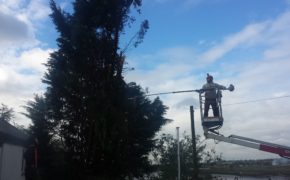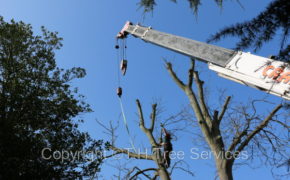
Get a quick no obligation quote It’s free and will only take a jiffy!
How to Become a Tree Surgeon
If you have an interest in trees, a love for working outdoors and are looking to enter a respected profession that brings great rewards, you may consider becoming a tree surgeon. But how do you get into tree surgery, what qualifications do you need and how do you go about gathering together all the other requirements necessary to operate legally and safely?
In this blog we’re answering all those questions, and have a great reference point for you to visit and get involved in when you’re done reading that will really help you on your way to becoming a tree surgeon with plenty of useful resources and support.
The first port of call when starting a career as a tree surgeon is to gain the necessary qualifications. Don’t scrimp here or go the easy route – you need as many qualifications as you can get – so that you learn to work safely and can command more respect in your field. The more certificates you have, the higher the level of competency you will have and the more likely you will be to attract regular, high quality work.
The Qualifications you Need
The levels of qualifications you need to state you are a qualified tree surgeon do vary but industry standards stipulate you need NPTC (National Proficiency Test Council) certificates of competence in:
- Chainsaw Operations CS30.1 and CS30.2
- Tree climbing and Aerial Rescue, ACTR02 Units 01 and 02
Bear in mind though that these are the basics. More advanced qualifications, such as National Diplomas and Certificates, will allow you to present a far more comprehensive affinity for being able to deal with a range of situations. They will also allow you to work to industry best practice – British Standard 3998 – which is vital for certain jobs such as those involving Tree Preservation Orders.
Health & Safety
As a tree surgeon you have to comply with health and safety legislation. You will undergo what are known as LOLER checks and have to keep proper records. Ideally you will also have a first aid at work certificate. You will need to be able to conduct thorough risk assessments so that you can head off potential issues before they become real hazards. And work out safe solutions to complex situations. And you need the right level of insurance too.
Learning Skills on the Job
Qualifications are not the be all and end all of becoming a tree surgeon. As you can see there are numerous skills you need to learn, and really the best way to do this is to do the apprenticeship. If you can work alongside experienced tree surgeons and learn the trade on the job, picking up good and safe practice on your way, you will have the edge over your competition. There is no substitute for on the job experience, especially alongside an experienced expert tree surgeon.
First Hand Advice on the Tree Surgeon Forum
If you’d like to learn more about becoming a tree surgeon there is plenty of first hand advice on offer on the TreeScapers Forum. Join for free and you’ll be in good company – ask for advice, get opinions and seek out useful resources. It’s a great place to convene!
Had a fallen tree in the early hours of Monday morning, called for quote and the team had it cleared on the same day. Really good communication when the lads were onsite and did a great job. Lots of pride in their work shown with the thorough clear up. Would thoroughly recommend.
Thank you Stuart for your kind review. We were glad to be able to help you with your fallen tree. If there's anything else you need in the future, please don't hesitate to get in touch.








